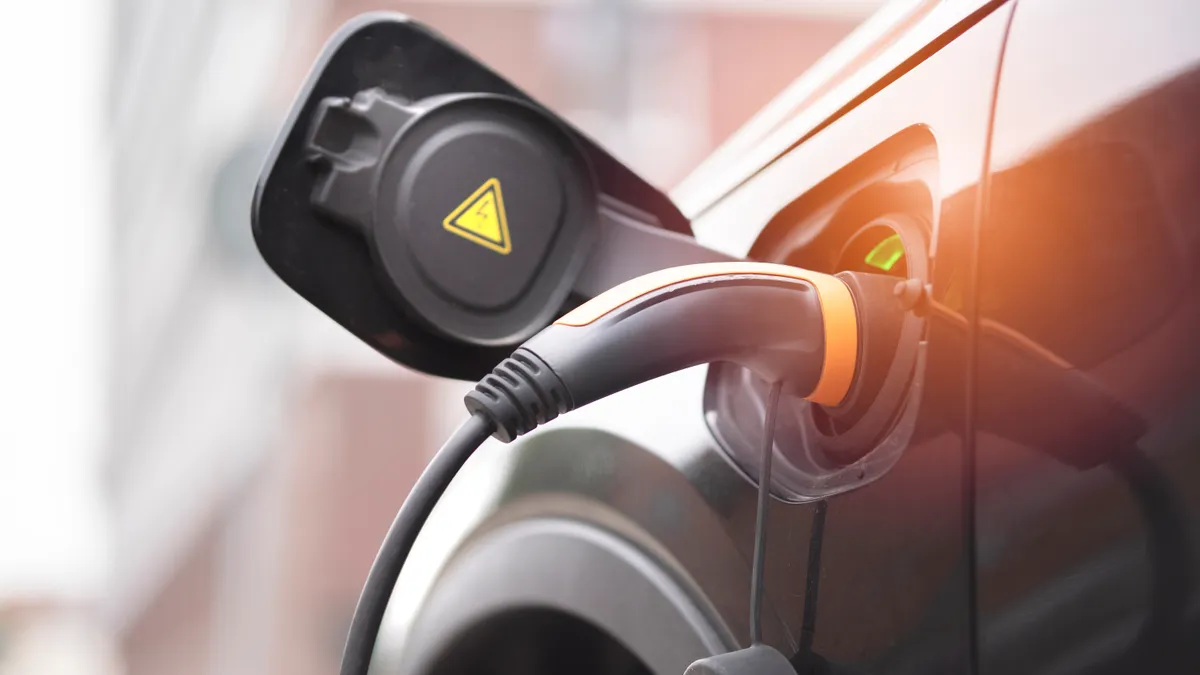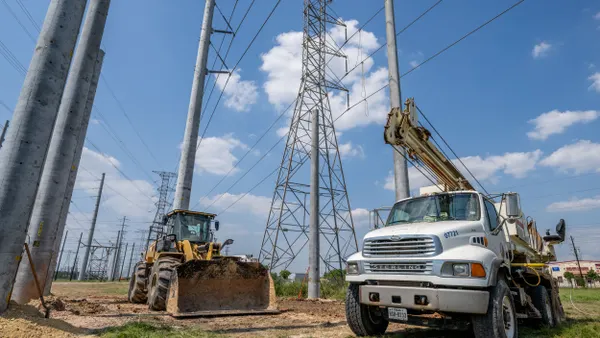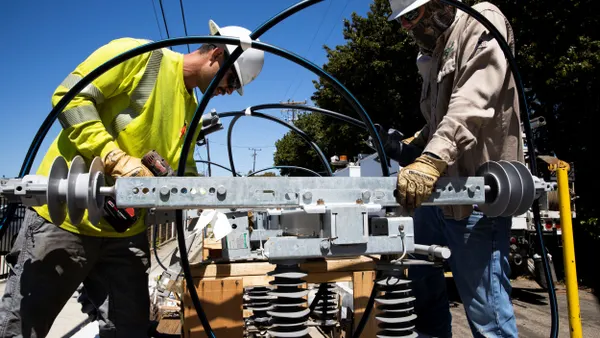Dive Brief:
- BMW Group, Ford Motor Company and American Honda Motor Co. are partnering on a technology and services platform called ChargeScape to help integrate electric vehicles with the power grid, the companies said Tuesday.
- The joint venture will help manage energy use for widespread EV deployment by connecting electric utilities, automakers and EV drivers through managed EV charging and energy-sharing services.
- ChargeScape will begin operations in early 2024, pending regulatory approval, the companies said.
Dive Insight:
With fuel efficiency mandates looming and EV sales rising, automakers are starting to work closer with utilities, regulators and others to ensure the electrical grid is ready for EVs and can support charging demands during peak times.
In August, General Motors, Ford and BMW of North America partnered with utility Duke Energy to pilot an EV charging subscription service that allows residential customers to pay a set monthly fee for up to 800 kWh of electricity — about double the monthly average for EV drivers.
The 12-month program may help Duke balance its grid by enabling it to call up to three demand response events per month, providing residential customers opportunities to curb their electricity usage during peak demand in exchange for a rate discount or other financial incentive.
Likewise, EV drivers will be able to earn financial rewards through ChargeScape’s platform by charging their vehicles when it’s best for the grid. In the future, the platform will allow EV drivers to use vehicle-to-grid technology to share the energy stored in their vehicle’s battery with the grid.
“Electric grid reliability and sustainability are the foundation for an EV powered future," Thomas Ruemenapp, vice president of engineering for BMW of North America, said in a statement. “ChargeScape aims to accelerate the expansion of smart charging and vehicle-to-everything solutions all over the country.”
According to the National Renewable Energy Laboratory, EV adoption may increase U.S. electricity demand up to 38% by 2050, making it more difficult for utilities and the grid to provide homes and businesses with reliable electricity. Solutions like grid-integrated smart charging can help utilities lower electricity demand, fill demand valleys and use renewable energy more efficiently, NREL says.
ChargeScape’s open vehicle grid integration platform allows two-way communication between EVs and the grid, making individual integrations between automotive brands and utilities unnecessary, the automakers said.
The platform will also provide utilities and system operators with energy data from plugged-in EVs, allowing them to balance energy supply and demand more effectively.
BMW, Ford and Honda each own an equal stake in ChargeScape.
















